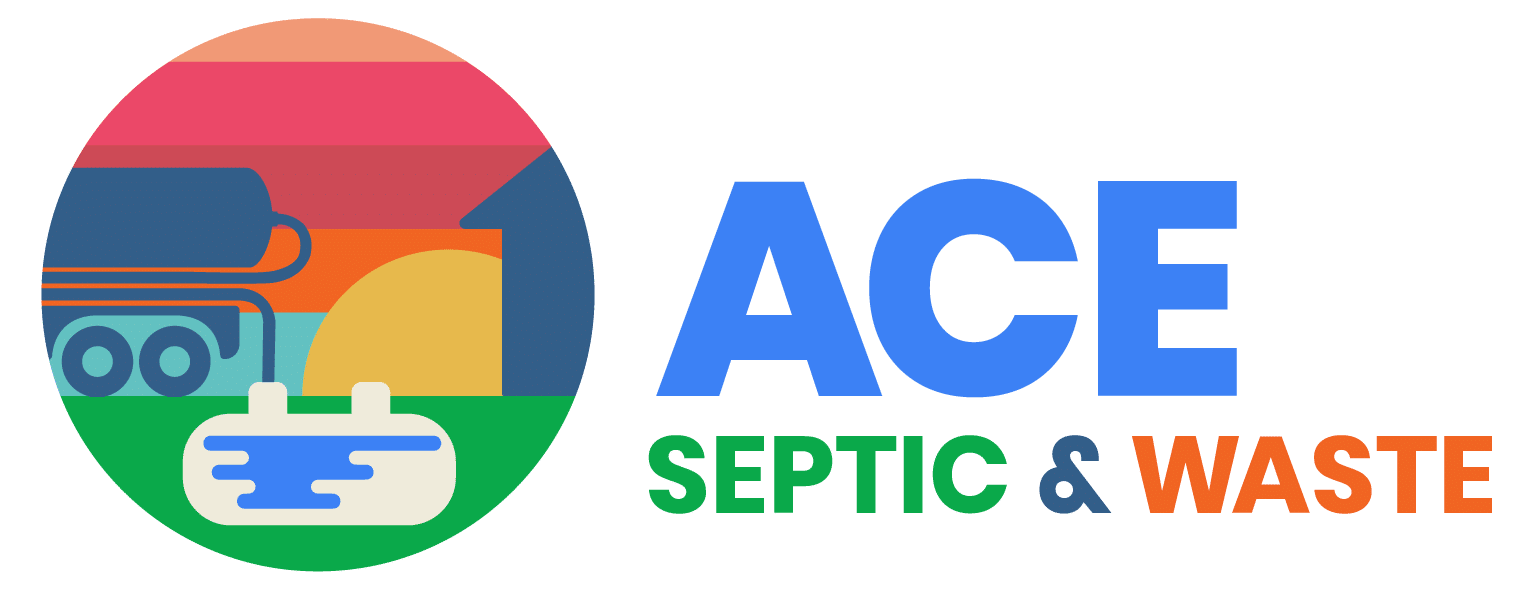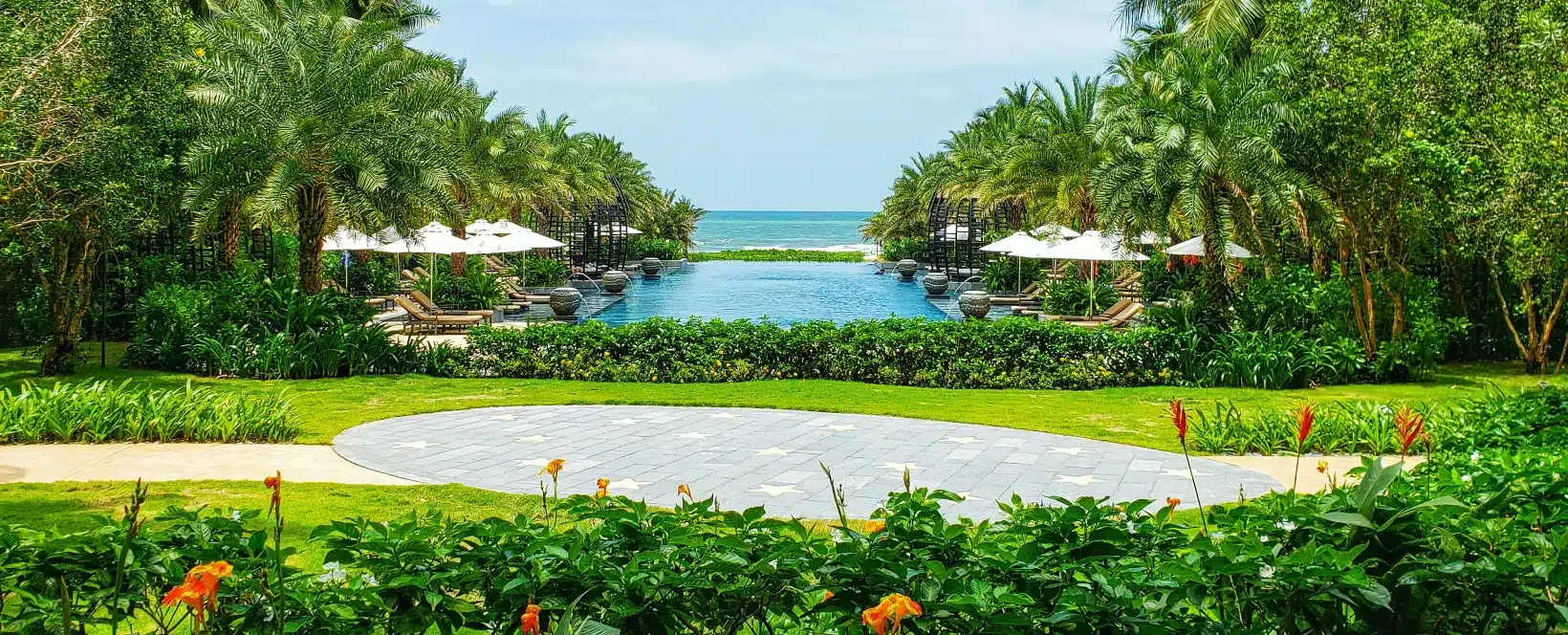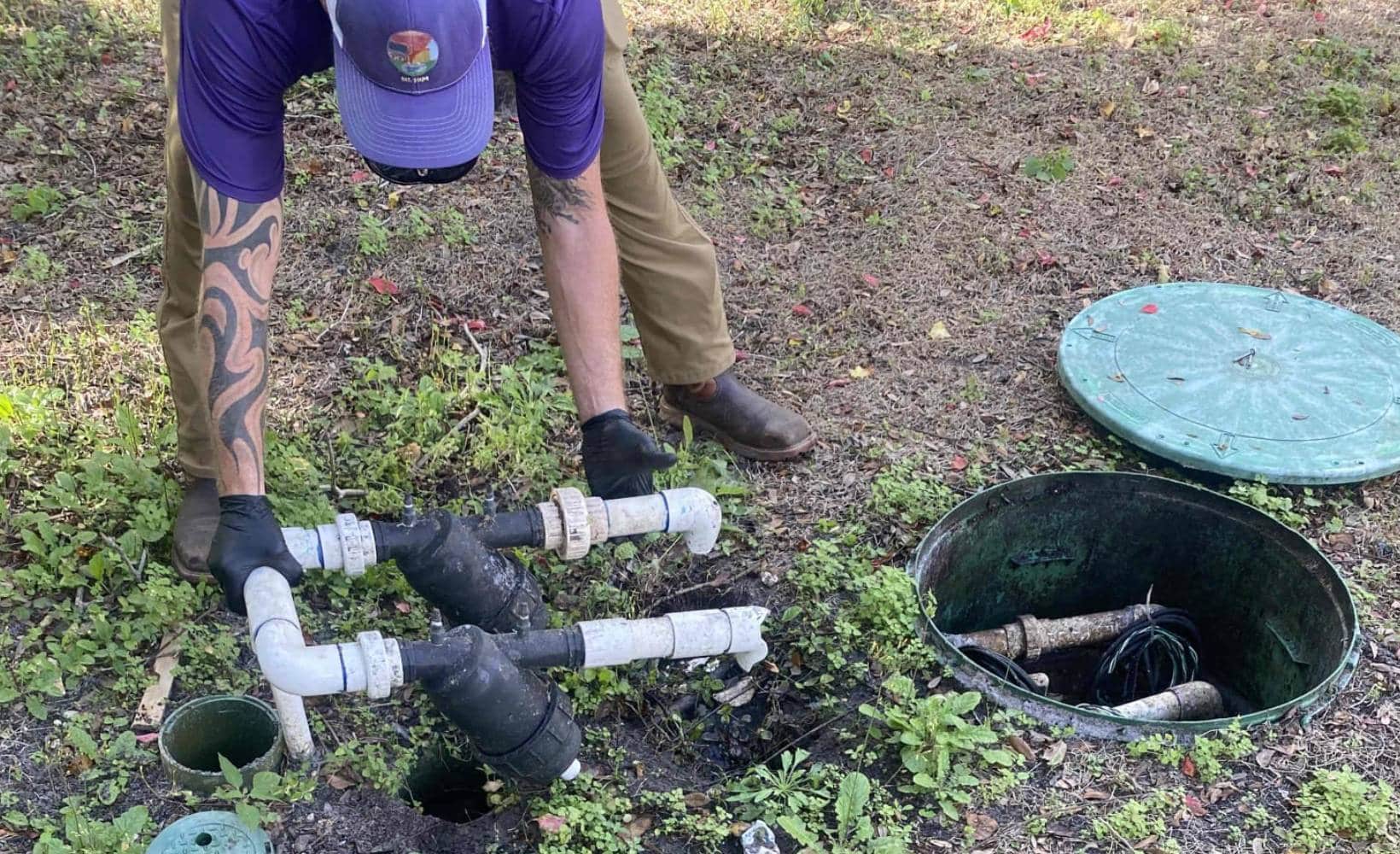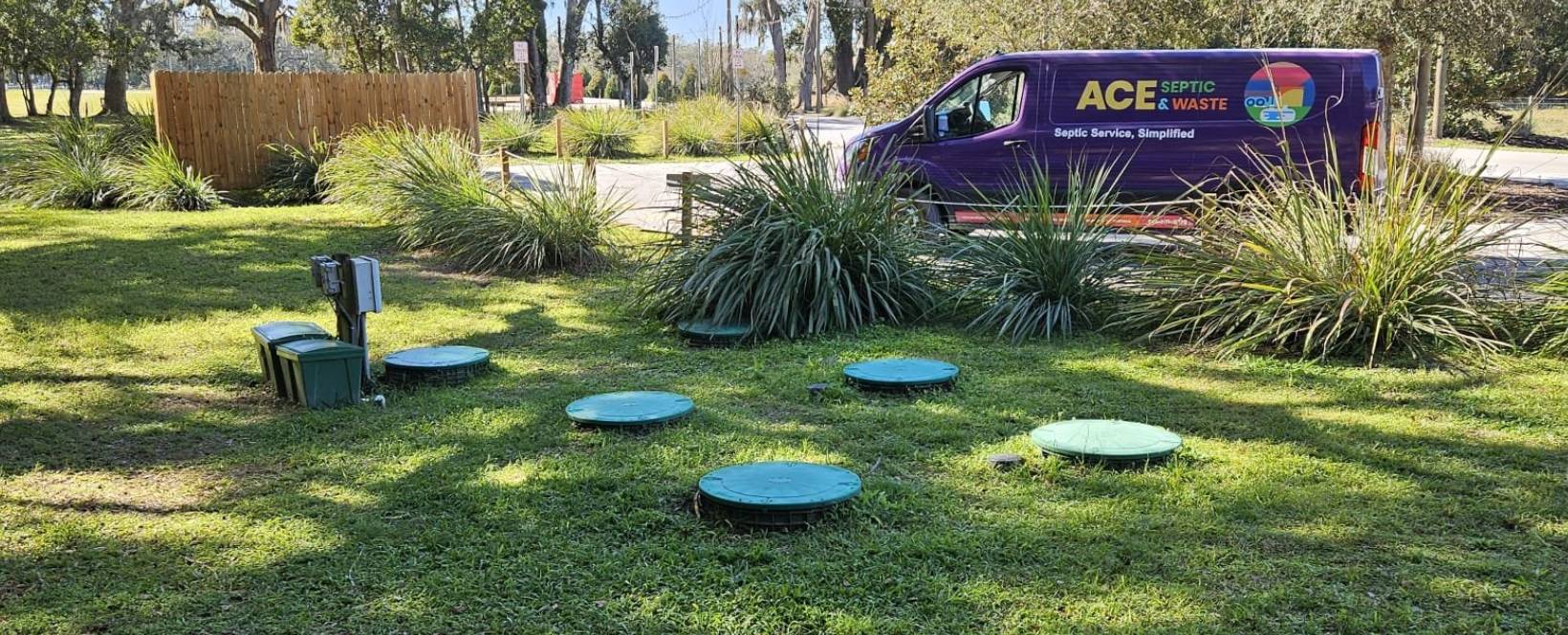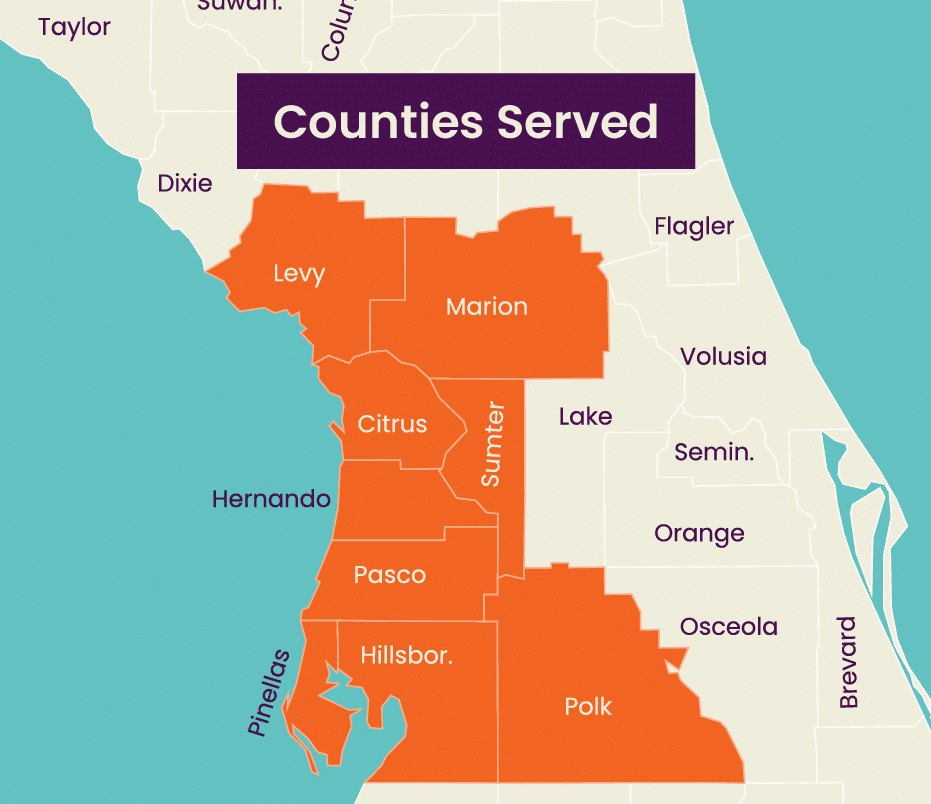When it comes to septic systems, the right landscaping isn’t just about curb appeal—it’s about system health and longevity. In Florida, where environmental conditions can be particularly challenging, it’s important to choose plants and landscaping techniques that won’t damage your system or harm the environment. Let’s review some practical advice from the EPA and tailored recommendations for Florida septic system landscaping.
The Golden Rules for Septic-Safe Landscaping
Don’ts:
- Avoid Vegetable Gardens on the Drainfield: The septic wastewater can contaminate food, and the digging involved can interfere with the system.
- Steer Clear of Heavy Coverings: Plastic sheets, bark, gravel, or excessive fill can restrict oxygen flow and water evaporation, which is crucial for the drain field’s function.
- Resist Major Ground Alterations: Creating ponds, adding significant fill, or reshaping the land can easily damage your septic system. Even a few extra inches of topsoil will add excessive pressure and may decrease your system’s efficiency and lifespan.
- Keep Off Heavy Items: This includes construction like decks, patios, or anything that could compress the soil over your drainfield. Don’t park vehicles or leave machinery on your drain field. You shouldn’t drive anything heavier than a riding lawn mower over your system.
Do’s:
- Opt for Grass and Native Vegetation: These plants are gentle on your septic system, encouraging proper water absorption and preventing erosion.
- Direct Water Away: To avoid saturation, make sure your landscaping allows surface drainage to flow away from your septic system.
- Secure the Tank Lid: A properly secured lid is essential for safety and system integrity.
Ideal Plants for Florida’s Septic Areas
When choosing plants for your septic field in Florida, focus on native, drought-tolerant species that are kind to your septic system.
Grass Options:
- St. Augustine sod: One of the most popular grasses, it thrives in warm, wet climates and is a great choice for landscaping due to its shallow root system.
- Fescue: Though not a native plant, it’s a common grass for lawns in northern Florida and is safe for septic fields.
- Bahia Grass: A native option, Bahia is drought-resistant and well-suited for Florida’s climate, requiring minimal care.
Sun-Loving Groundcovers:
- Bugleweed (Ajuga): This attractive groundcover thrives in Florida’s climate, offering a robust option that won’t invade your septic system.
- Periwinkle (Vinca): Another safe choice, Vinca provides coverage and beauty without deep, threatening roots.
Shade-Tolerant Groundcovers:
- Ferns: Various native ferns like Cinnamon or Southern Maidenhair can beautify shaded areas without endangering your septic system with aggressive root systems.
- Wild Ginger (Asarum): Ideal for shaded areas, providing low ground cover that’s both attractive and septic-safe.
Practical Landscaping Tips
- Know Your Septic Layout: Before planting, ensure you know where your tank and drainfield are located. Consider using decorative elements like stepping stones or garden ornaments to mark the boundaries of your septic system. This prevents unintentional damage during yard maintenance and adds a visual appeal to your garden.
- Choose Shallow-Rooted Plants: As recommended, shallow-rooted plants prevent root intrusion that can clog or damage septic lines. Do not plant trees near your septic system or drain field.
- Avoid Water-Loving Plants Near the System: These can over-saturate the drainfield, disrupting the system’s ability to treat wastewater effectively.
Your Ideal Landscaping with a Septic System
The right landscaping choices can significantly impact the efficiency and lifespan of your septic system. In Florida, the combination of sandy soil, frequent rain, and high groundwater levels poses unique challenges. These guidelines protect your septic system and contribute to the overall health of your property and local environment.
A little knowledge and the right plant choices go a long way in keeping your septic system healthy and functional. Follow these tips, and you can enjoy a beautiful, safe, and beneficial landscape for your Florida home. For help with your septic system, contact ACE Septic and Waste.
